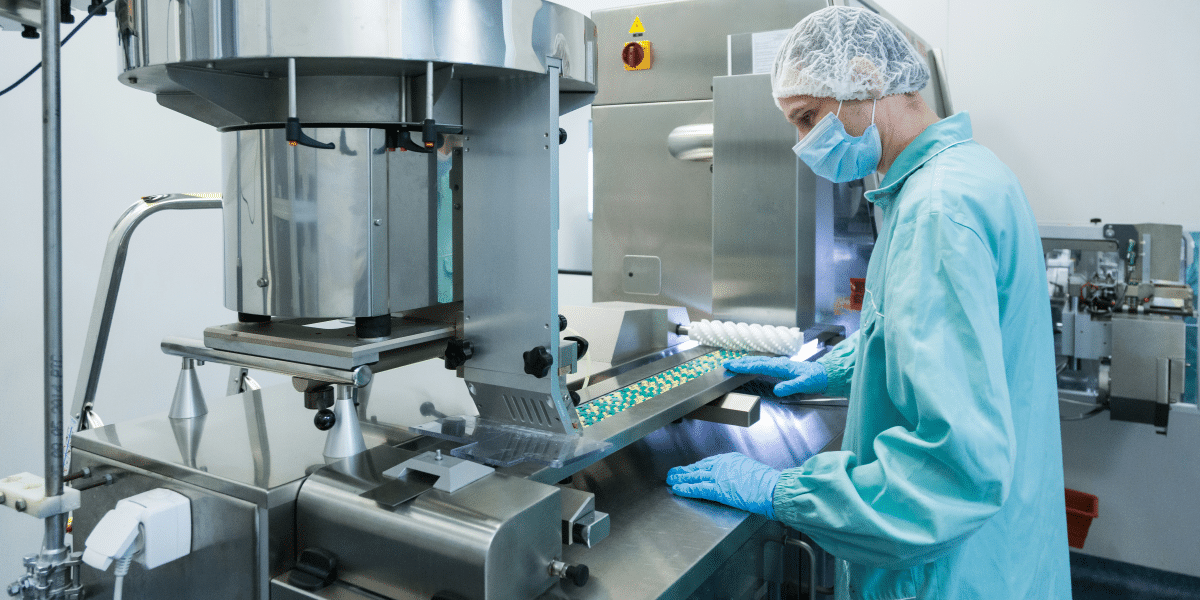By: Marcus Hale
Portland, Oregon, is emerging as a significant contributor in the pharmaceutical and biotech sectors. Known for its innovative spirit and collaborative business environment, the city has nurtured a growing community of pharmaceutical companies, research institutions, and biotech startups. As the demand for novel therapies and technologies grows, Portland’s contributions to the pharmaceutical industry offer unique insights into the evolving landscape of drug development, clinical research, and manufacturing.
Portland’s Emerging Biotech Ecosystem
Portland’s pharmaceutical and biotech ecosystem has been steadily expanding, supported by the city’s renowned research institutions and a culture that encourages innovation. Key institutions, such as Oregon Health & Science University (OHSU) and the Knight Cancer Institute, have fueled growth in research and clinical trials, attracting talent and investment to the area. With a primary focus on cancer research, gene therapy, and regenerative medicine, these institutions collaborate with local biotech firms to drive advancements in patient care.
The city’s supportive infrastructure, with incubators and biotech hubs like the Oregon Bioscience Incubator, provides startups with the resources they need to thrive. This nurturing environment supports new companies in realizing their ideas, contributing to the region’s reputation as an emerging innovation hub in the pharmaceutical field.
Advancements in Cancer Research and Immunotherapy
Portland is particularly recognized for its efforts in cancer research and immunotherapy, driven largely by collaborations with OHSU. The Knight Cancer Institute, part of OHSU, has become a center of excellence in oncology, pioneering research in personalized medicine and immunotherapy. According to Nirdosh Jagota, Managing Partner at GRQ Biotech Advisors, Portland’s role in developing innovative therapies reflects a commitment to addressing the unique needs of cancer patients. Jagota highlights how collaborations between academia and industry in Portland enable discoveries that contribute to reshaping cancer treatments.
These advancements in immunotherapy, which focus on leveraging the body’s immune system to fight cancer, have led to therapies that may minimize side effects and improve patient outcomes. Portland-based research plays a significant role in clinical trials and the development of targeted therapies that could potentially become standardized treatments for cancer patients globally.
Growth of Gene Therapy and Regenerative Medicine
Gene therapy and regenerative medicine are two progressing fields within the pharmaceutical industry, and Portland is making valuable contributions in both areas. Gene therapy offers the potential to treat or even manage genetic disorders by repairing or replacing faulty genes. Portland’s research institutions are conducting studies funded by the National Institutes of Health (NIH) and private biotech firms.
Regenerative medicine, which aims to repair or replace damaged tissues and organs, is also gaining traction in the city. Portland-based startups are developing solutions that combine cell biology and tissue engineering to address conditions previously seen as challenging to treat. These efforts contribute not only to local innovation but also to broader research aimed at enhancing patient care.
Sustainable and Eco-Friendly Drug Manufacturing
Sustainability has become an increasingly important factor in the pharmaceutical industry, and Portland’s eco-conscious culture is evident in the practices of its local pharma companies. Several companies are prioritizing a reduction in their environmental footprint by adopting green chemistry practices and investing in eco-friendly manufacturing processes. These initiatives aim to lower waste production, conserve resources, and reduce emissions, all of which support a more sustainable industry.
Pharmaceutical firms in Portland are exploring eco-friendly methods in drug manufacturing without compromising quality or efficiency. Adopting green practices can enhance a company’s reputation, particularly as patients and consumers increasingly prefer brands that demonstrate a commitment to sustainability.
Clinical Trials and Patient-Centric Approaches
Clinical trials are a fundamental part of drug development, and Portland’s growing involvement in this area reflects the city’s dedication to advancing healthcare. With institutions like OHSU leading numerous clinical trials, Portland has become a notable location for testing new therapies for efficacy and safety. Many of these trials emphasize a patient-centric approach, ensuring that trials are conducted in a way that respects patients’ needs and enhances their experience.
The emphasis on patient-centric approaches aligns with Portland’s broader focus on healthcare accessibility and equity. By involving patients more closely in clinical research, companies gain essential insights into how new treatments work in real-world settings. This shift towards patient-centricity in clinical trials makes Portland an attractive location for research organizations and pharmaceutical companies seeking to develop therapies that improve patient quality of life.
Collaboration with Regulatory Bodies
Navigating regulatory requirements is a complex aspect of drug development, and Portland-based companies stand out for fostering positive relationships with regulatory agencies. According to Nirdosh Jagota, Portland’s collaborative approach has been key in supporting the compliance of new drugs and therapies with regulatory standards. By maintaining communication with the FDA and other agencies, Portland’s biotech firms and researchers facilitate processes for approval, helping new therapies reach the market more efficiently.
This collaboration also involves aligning with new regulatory standards, particularly with the recent focus on accelerated approvals for drugs that address significant unmet medical needs. Portland’s biotech community has shown adaptability in updating practices to meet evolving guidelines, positioning the city as a leader in regulatory compliance within the industry.
Investment in Digital Health and AI
Digital health technologies and artificial intelligence (AI) are transforming the pharmaceutical landscape, and Portland is part of this trend. Local companies and institutions are integrating digital tools that aid in drug discovery, patient monitoring, and clinical trial efficiency. For example, AI-powered platforms allow researchers to analyze data quickly, identifying drug candidates and optimizing clinical trial designs.
In addition to AI, telemedicine and wearable health devices are increasingly used in Portland’s healthcare approach. These solutions support remote patient monitoring, which is crucial in managing chronic conditions and conducting long-term studies. Portland’s commitment to digital health is modernizing patient care and establishing the city as a progressive hub in the pharmaceutical and biotech sectors.
Conclusion: Portland’s Impact on the Pharma Industry
Portland’s role in the pharmaceutical industry reflects a blend of pioneering research, dedication to sustainability, and collaborative efforts. From advancements in cancer research and immunotherapy to green manufacturing initiatives, Portland contributes meaningfully to the future of pharma. The city’s expertise in regulatory compliance, combined with its emphasis on patient-centric research and digital health, forms a strong foundation for continued growth.
References: https://www.ohsu.edu/
Published by: Annie P.








